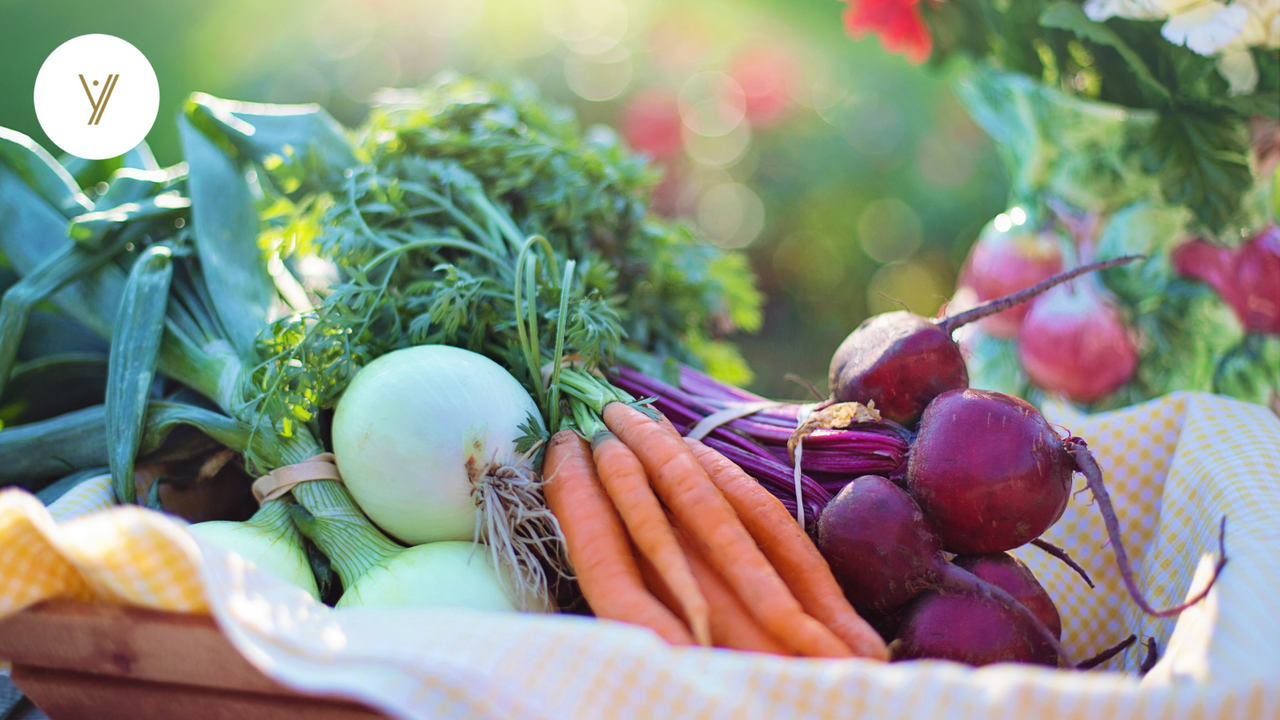Eat real food: from soil to mouth
Feb 01, 2022
There are so many diets and eating programs that you could follow. There is so much information out there that you could read and apply to your life, and before you know it, you end up more confused than before you even started. We thought we would simplify this.
Here are some incredibly simple tips to getting healthy and sustaining a healthy lifestyle in yours and your family’s lives.
Think about what health means to you:
-
Is it to be thin?
-
Or having enough energy to get through our busy days?
-
Maybe it is to have no illness in your body?
Define what you see health as, and write it down. Spend time recognising why you are taking a step into a journey towards good health.
Once you have a good understanding of why you are doing something it cuts out a whole lot of other “noise”, which in turn helps you to not get yourself distracted by other fad diets or other people’s experiences.
Stick To Real Food
The real foods we are talking about are the foods that come straight off or out of the ground, a tree or plant or out of the sea, in their natural, unhindered state.
For example, eat a carrot not a processed carrot chip out of a packet in the supermarket.
Here Are Some Ways You Can Define A Whole Food:
- A whole food, remains as close to its natural, organic state, as it would be in nature.
- They are totally unprocessed and unrefined.
- These foods are free from added ingredients such as fat, salt and sugar, flavourings, or any other manufactured ingredients.
- They are as natural as possible which means they provide maximum nutritional value.
- They are not manufactured and therefore they are not manipulated in any way.
- Whole foods are not genetically modified, processed, coloured, made by synthetic means, or laden with hormone additives.
- They have a high levels of vitamins, minerals, fibre and antioxidants which keep us healthy and feeling good!
Other Benefits Of Whole Foods Include:
- Having a higher nutritional content, whole foods are richer in vitamins, minerals, good fats and antioxidants as opposed to processed foods.
- Whole foods are a rich source of essential fibre. Whole foods provide dietary fibre which prevents constipation and is thought to help prevent diseases such as Type 2 diabetes and heart disease.
- They help promote and maintain a healthy weight compared to a diet high in processed foods. (I have never seen anyone overeat broccoli or spinach!)
- Compared to taking supplements, eating whole foods is the best way for the body to absorb essential nutrients and align with great health.
- Whole foods are complex so contain a rich variety of the micronutrients your body needs rather than just a single nutrient.
Anything with more than a few ingredients should be avoided, and ideally, single ingredient foods would be our goal. This includes eating fresh fruits and vegetables, whole grains & legumes, natural sweeteners, full-fat dairy and healthy, lean meats that are minimally processed.
Here’s a list of whole foods for you to try:
If you’re looking for recipes with whole foods, to inspire you, Subscribe to our youtube channel and keep an eye out for our up and coming ideas, recipe and tips.
Vegetables (Fresh or Frozen)
- Artichokes
- Asparagus
- Avocados (technically a fruit)
- Beets
- Bell peppers
- Broccoli
- Brussels sprouts
- Cabbage
- Carrots
- Cauliflower
- Celery
- Cucumbers
- Garlic
- Green beans
- Greens such as spinach, chard, collard or kale
- Leeks
- Mushrooms
- Onions
- Parsnips
- Radishes
- Shallots
- Squash of all kinds
- Sweet potatoes
- Tomatoes
- Turnips
Fruits (fresh or frozen with no added sugar)
- Apples
- Apricots
- Bananas
- Blackberries
- Blueberries
- Cantaloupe
- Cherries
- Grapefruits
- Grapes
- Kiwi
- Lemons
- Mangoes
- Nectarines
- Oranges
- Peaches
- Pineapple
- Plums
- Pomegranates
- Raspberries
- Star fruit
- Strawberries
- Watermelon
Lean Meats (buy organic when you can)
- Fish of all kinds
- Chicken breasts, boneless and skinless
- Whole chicken (more cost effective)
- Turkey
- Mince
- Venison (in place of beef)
- Eggs
Beans And Legumes (dry or canned)
- Adzuki beans
- Black beans
- Chickpeas (garbanzo beans)
- Kidney beans
- Lentils (all types)
- Navy beans
- Pinto beans
- Split peas
- White beans
Whole Grains
-
Brown rice
-
Buckwheat
-
Bulgur
-
Quinoa (technically a seed, but treated as a grain)
-
Rye
-
Spelt
-
Steel cut oatmeal
-
Wild rice
Canned Or Jarred Items
- Coconut milk
- Olives
- Sun-dried tomatoes
- Tomato sauce/paste (no sugar added and little to no added sodium)
- Tuna packed in water
- Vegetable or chicken stock/broth (no sugar or dextrose added, and little to no added sodium)
Dried Fruits And Nuts (raw nuts not roasted and salted)
- Almonds
- Pistachios
- Walnuts
- Cashews
- Brazils
- Macadamia
- Goji berries
- Coconut
- Seeds
- Nut Butters (with no added oils are sweeteners)
Condiments And Spices
- Balsamic vinegar
- Herbs and spices of all varieties (not the spice mixes like taco seasoning, just the pure herbs.)
- Mustard with no added sugar
- Greek yogurt in place of sour cream or mayo
- Extra virgin olive oil
- Unsweetened cacao powder
